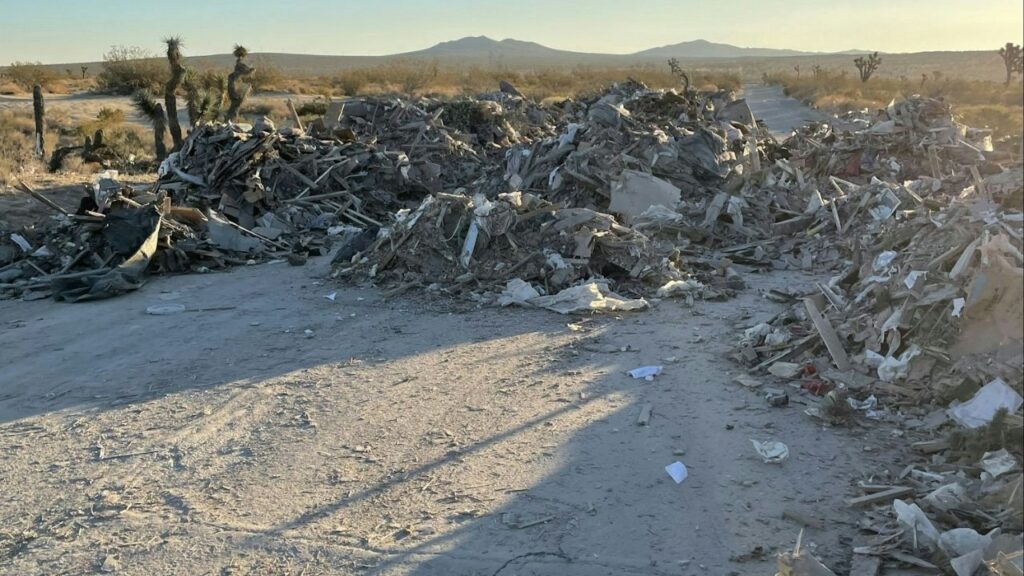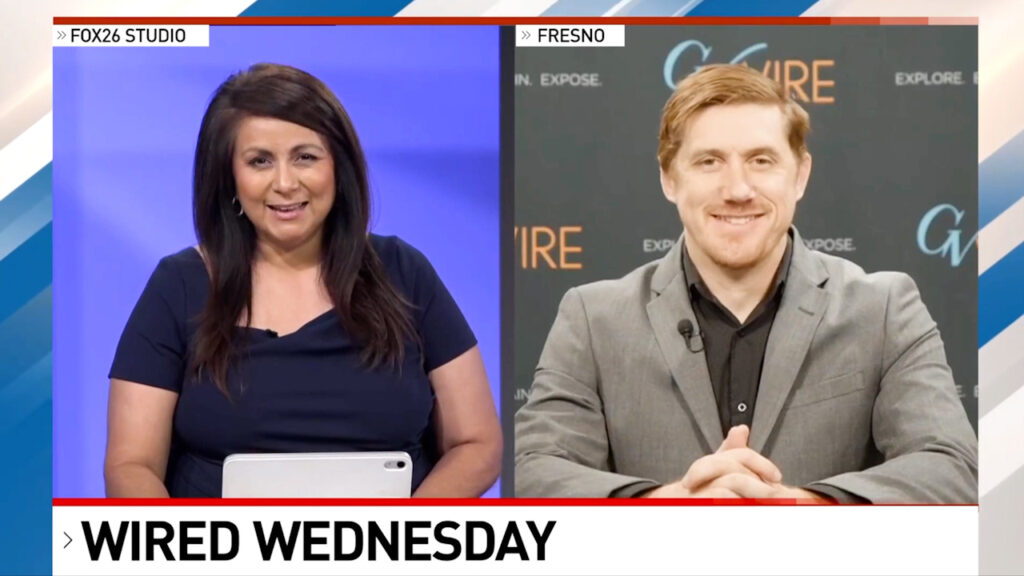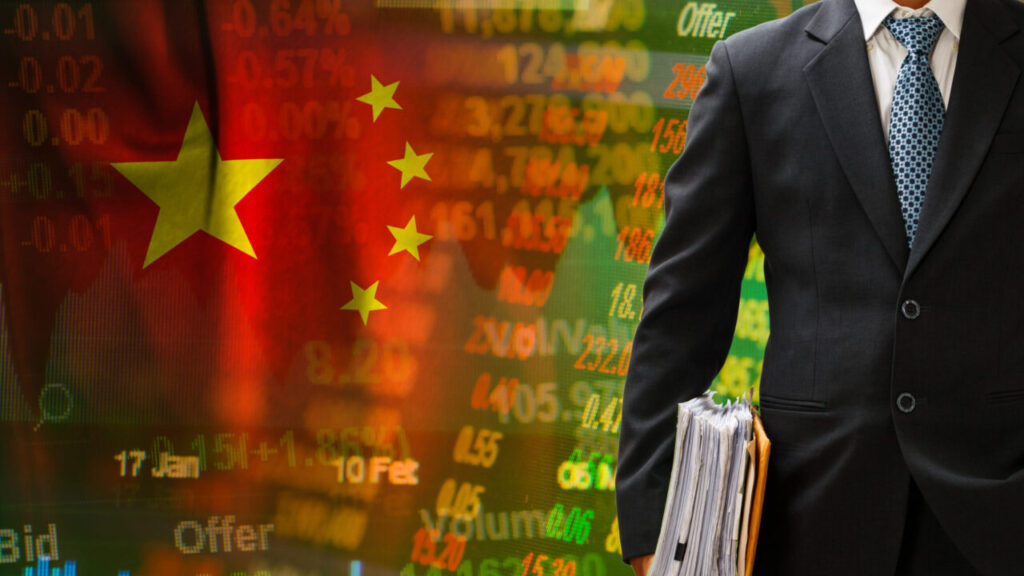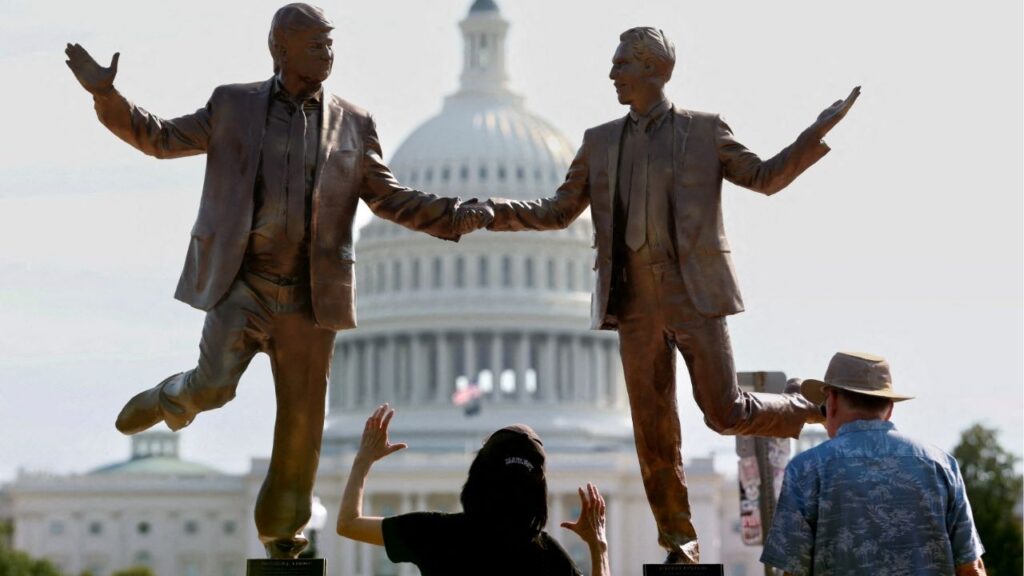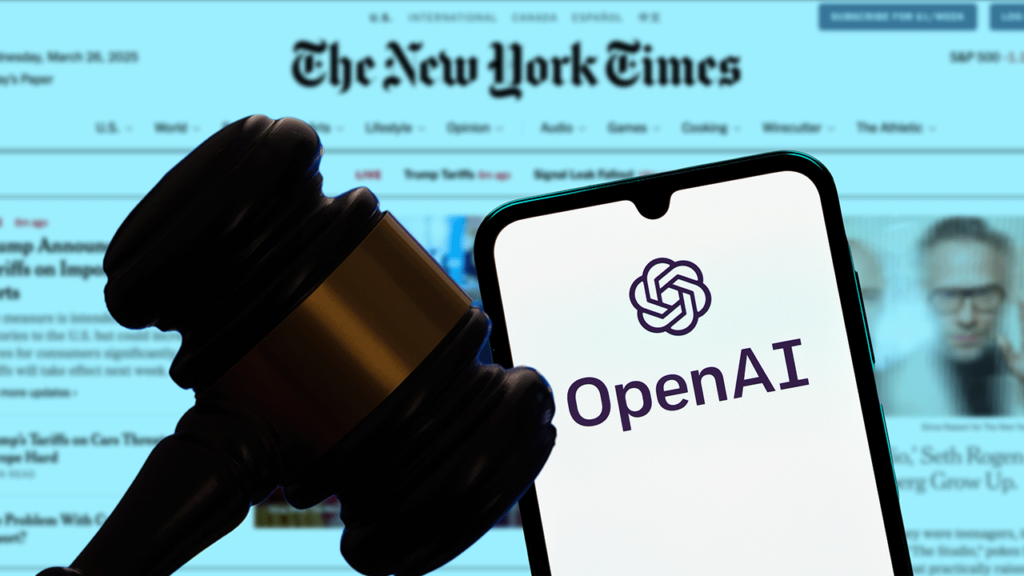Chairs sit outside the room where President Donald Trump and Chinese President Xi Jinping will meet on the second day of the G20 Summit in Osaka, Japan, on June 29, 2019. (Erin Schaff/The New York Times)

- Trump’s approach to China deviates from the bipartisan consensus, risking U.S. competitiveness during the “decisive decade.”
- His past focus on short-term gains over strategic competition weakened U.S. leverage, compromising long-term technology and manufacturing goals.
- Trump’s unpredictable stance on Taiwan and alliances could embolden China, potentially destabilizing global security and economy.
Share
|
Getting your Trinity Audio player ready...
|
Opinion by Rush Doshi on Oct. 14, 2024.
TRUMP REMAINS WELL OUTSIDE A BIPARTISAN CONSENSUS ON COMPETING WITH CHINA.
At the beginning of the Biden presidency, many of us serving in the National Security Council gathered to read the intelligence and reached a key conclusion: The 2020s would be what we called the “decisive decade” in U.S. competition with China.
Beijing seeks to displace the United States from its global leadership position and is a formidable challenger. It is America’s first geopolitical rival to surpass 70 percent of U.S. G.D.P., exceed American industrial capacity and pull ahead in multiple technology sectors, such as electric vehicles, hypersonic weapons and nuclear energy technology. Absent corrective action, the United States risks falling behind China technologically, growing dependent on it economically and perhaps even suffering defeat by China’s military in the Taiwan Strait or the South China Sea. How the next U.S. president navigates the remaining years of this decisive decade will have far-reaching consequences for America and the rest of the world.
Related Story: Harris Releases Health Records, Challenges Trump’s Fitness
The good news is that despite deep divisions in American politics, Democrats and Republicans now broadly agree on the need to outcompete China. They have enacted legislation intended to boost American technological leadership, revive domestic manufacturing, promote human rights around the world, strengthen American deterrence in the Taiwan Strait and bolster Asia-Pacific alliances.
That united front will be undermined if Donald Trump is elected again. Ironically, although he helped catalyze the current bipartisan approach as president by upending the long-term U.S. policy toward China that emphasized engagement over competition, he has never fully embraced the new consensus and now stands outside it. On China, he is often at odds with his former staff members, current advisers, the nationalist wing of his party and even his own vice-presidential pick — all of whom see the challenge posed by Beijing more clearly than he does. Left to his own unpredictable impulses, Mr. Trump could very well lose this decisive decade for America.
Nobody grasps this better than China’s leaders. They saw his term as an accelerant of what they believe to be American decline, and not without reason. Mr. Trump focused on U.S. commodity exports instead of long-term manufacturing strength. He alienated allies and partners, mishandled the pandemic response and repeatedly showed disregard for democratic norms. On China policy, he routinely put personal gain over America’s interests and undermined important steps his staff members took to compete with Beijing. As a result, Mr. Trump was widely mocked by Chinese citizens, who nicknamed him “Chuan Jianguo” (“Build-the-Nation Trump” — the “nation” being China). His administration led President Xi Jinping of China to declare that the world was undergoing “great changes unseen in a century” as America fell from pre-eminence.
Related Story: California Tries ‘Trump-Proofing’ Its Climate Policies
There is no reason to believe that in a second term Mr. Trump would deviate from the approach that weakened America’s position during his presidency.
Take technology policy. When Mr. Trump was in office, his administration rightly levied export controls on Huawei and ZTE, Chinese telecommunications companies that the intelligence community had warned could be vectors for espionage and cyberattacks. But he put self-interest first. He reportedly promised Mr. Xi he would lift the controls (and eventually did so for ZTE, despite bipartisan opposition) in exchange for purchases of U.S. agriculture and energy commodities that he felt would help his re-election prospects.
Today Mr. Trump opposes overwhelmingly bipartisan legislation that would ban TikTok unless the app’s China-based owners sell it. The goal is to prevent Beijing from being able to shape U.S. public opinion by manipulating the news feeds of TikTok’s 170 million American users or from having access to sensitive user data. He previously supported this approach but appears to have reversed himself after meeting with a top donor who has a roughly $30 billion stake in the app.
President Biden has taken important steps to deny China the advanced semiconductors it needs to take the lead in artificial intelligence and improve its military weapons, and he has moved to shore up America’s defenses against Beijing’s publicly documented campaign to compromise critical U.S. infrastructure, such as water, gas, telecommunications and transportation, in the run-up to a possible conflict. If, in a second term, Mr. Trump again elevates his personal interests above the country’s approach to technology competition, it would put these vital efforts at risk.
The story is similar in manufacturing. As a recent report by Senator Marco Rubio made clear, China already “leads in many of the industries that will determine geopolitical supremacy.” Members of both parties recognize that urgent action is needed to reindustrialize America as a new flood of Chinese exports threatens key U.S. industries.
Related Story: Sanewashing? The Banality of Crazy? A Decade Into the Trump Era, Media ...
Mr. Trump does not seem to share this view. As president, he squandered any leverage he gained from raising tariffs on China by accepting a bad trade deal that he hoped would help his re-election prospects. The deal allowed Beijing to keep its unfair practices and sell Americans manufactured goods if China promised to buy American commodities. More bad deals like that in a second term could cost millions of U.S. jobs, displace America in high-tech industry and accelerate decline by turning the United States into a commodity supplier dependent on Chinese manufactured goods.
With democracy and human rights under pressure around the world, American leadership in defending those values is imperative. Yet Mr. Trump retains an affinity for authoritarian leaders like Mr. Xi and President Vladimir Putin of Russia that is far outside the bipartisan consensus. Mr. Trump once praised China’s response to the Tiananmen Square massacre and threatened to veto nearly unanimous legislation condemning China’s crackdown on Hong Kong by declaring, “We have to stand with Hong Kong, but I’m also standing with President Xi.” According to Mr. Trump’s former national security adviser John Bolton, Mr. Trump privately encouraged Mr. Xi to build the re-education prisons in which China interned an estimated one million ethnic Uyghurs. A second Trump term could further greenlight China’s repression and its drive to weaken democratic values and American leadership around the world.
Mr. Trump’s ideas on Taiwan are a blueprint for calamity. For decades, Washington has deterred China from invading Taiwan with a bipartisan policy of strategic ambiguity about whether the United States would defend the island. Mr. Trump threatens to weaken that deterrence. He said recently that Taiwan should pay the United States to defend the island, which is democratically ruled, while cavalierly casting doubt on America’s ability to do just that.
This is extremely dangerous. Telegraphing a lack of U.S. resolve could one day embolden China to seize the island, which could spark a conflict that devastates the global economy. And Beijing has already taken notice: It is increasingly well known in Western diplomatic and scholarly circles that Chinese officials and think tank experts are quietly asking whether Mr. Trump might acquiesce to Chinese military action against Taiwan if he is re-elected.
Related Story: Harris Releases Health Records, Challenges Trump’s Fitness
Democrats and Republicans alike believe that strengthening America’s global alliances is one of the best ways to counter China. But Mr. Trump has shown that he still does not value America’s international friendships. He is threatening once again to raise tariffs on allies, make them pay more for collective defense and renege on U.S. defense commitments. Without its allies, America would stand alone against Beijing.
China is America’s most formidable geopolitical rival in a century, and thanks to Mr. Trump’s term in office, leaders in Beijing are acutely aware of what he is about and how to manipulate him. They believe China is rising and America is declining. Electing Mr. Trump next month risks proving them right.
–
This article originally appeared in The New York Times.
By Rush Doshi/Erin Schaff
c. 2024 The New York Times Company
RELATED TOPICS:
Categories

Three ‘Little Pigs’ Held by Sanger Police








